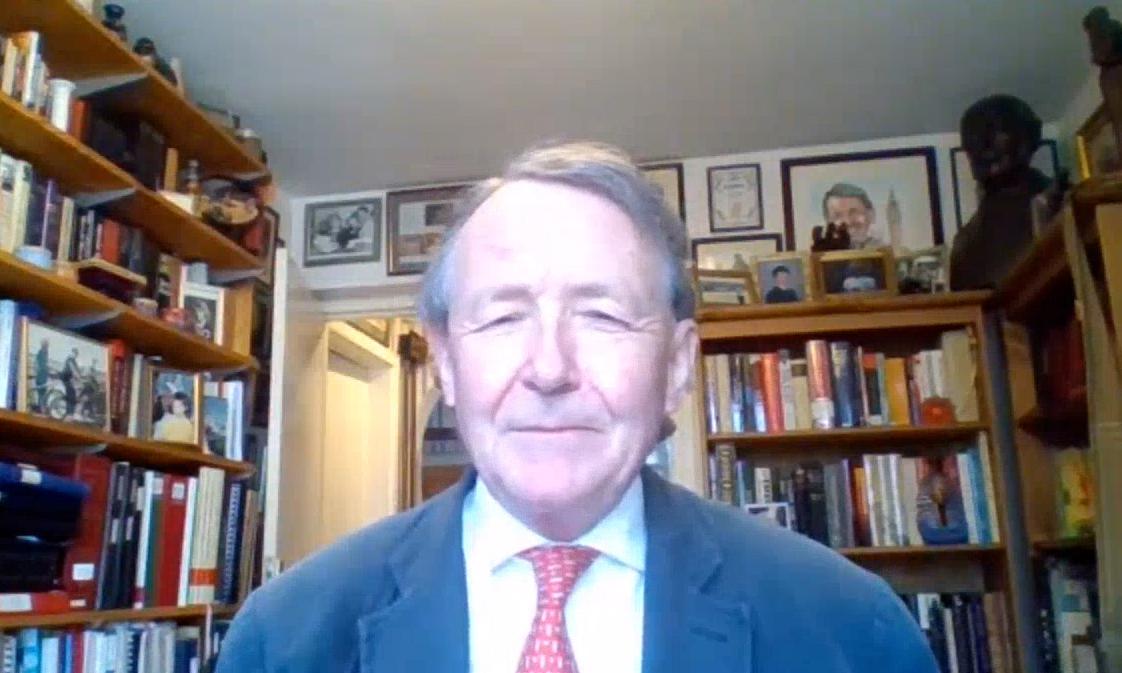The genocide amendment aims to stop bilateral trade with genocidal countries, and is the last remaining obstacle to the Trade Bill becoming law.
The ministers “have to come back to the House of Commons if they want to get their Trade Bill, and their Trade Bill is quite an important bill,” Duncan Smith said.
If the bill fails, it will be harder for Britain to make international trade agreements post-Brexit.
“So they have to deal with this amendment one way or the other,” he said.

Lord David Alton of Liverpool initially authored the amendment to have UK domestic courts make deliberations on genocides, because of the UK government’s long-standing position that only a competent court can make such judgements.
“And as a result of that, they won’t call it genocide even if they know that or believe it to be genocide, they’re not meant to call it genocide,” Duncan Smith said.
“Pretty much every genocide in the last 75 years, no one has ever during the course of the genocide, been allowed or able to call it genocide,” he said.
After two rounds of compromises, the current version of the amendment seeks to establish an ad-hoc Parliamentary Judicial Committee—composed of retired judges in the House of Lords—to make preliminary determinations on whether a partner in a relevant bilateral trade agreement with the UK has committed genocide, so the government can decide its actions accordingly.
The date of the vote is yet to be announced. Duncan Smith said he suspects it won’t be back for another week.
“The government doesn’t seem to be in any hurry to bring it back. I think that’s because they realise that ... right now, our amendment is genuinely seen as a compromise,” he said.
“But it will give various groups, the Uyghur as well, a chance to make their case to this committee. And that’s the important thing, but the government seems reluctant to agree there.”
Duncan Smith said he thinks the government opposes the amendment because it wants to trade with China.
“I think the truth of the reason why the government has resisted this endlessly—it’s almost illogical the way that they’ve constantly resisted this—it’s because they genuinely behind the scenes do want to strike some kind of trade arrangement with the present Chinese government,” he said.
Having been a cabinet minister himself, Duncan Smith said that “it’s the oldest get-out card that you ever play as a minister: We have no plans.”
He said that the UK government felt pressure after the European Union rushed what he called a “terrible trade deal with China,” and it would be a mistake for the UK to follow suit.
‘The UK Needs To Lead’
Currently, the international route to making determinations on genocide is effectively blocked.The International Court of Justice, which deals with state-sponsored genocide, can’t deal with allegations of genocide in China because of the country’s veto power in the U.N. Security Council.
The International Criminal Court, “where individuals are tried for grievous crimes,” needs the nation in question to be a signatory to the Rome statute, which China is not.
Duncan Smith has the opposite view.
“What’s the alternative?” he said. “Do nothing, because you have a very low regard for your own ability and capability?”
“The truth is the UK needs to lead,” he said, adding that the UK has significant influence through its “huge connections to the Commonwealth” and alliances with the rest of the Five Eyes states, France, and some other European countries.
“We have a real chance to lead. After all, if the UK starts to ask these questions, then I think others follow. It’s very important for us to do this.”




